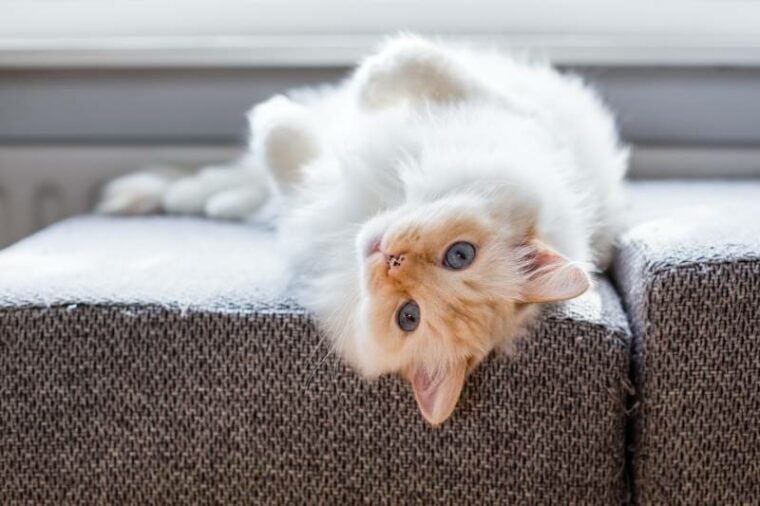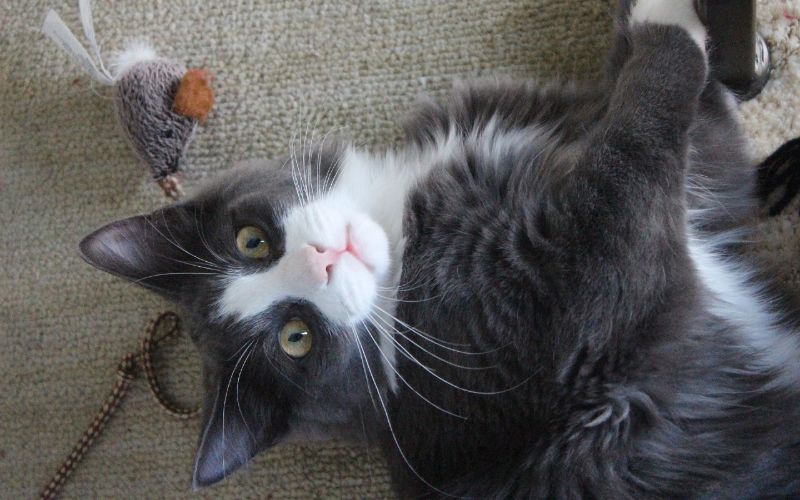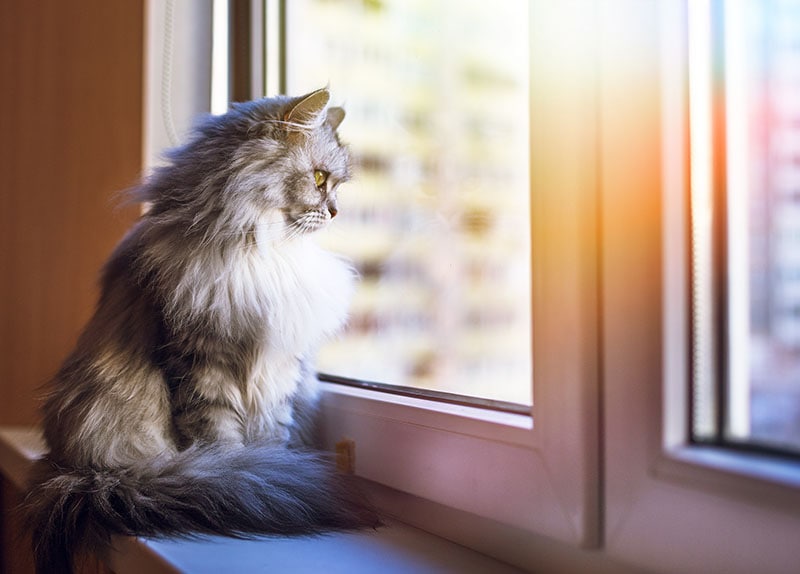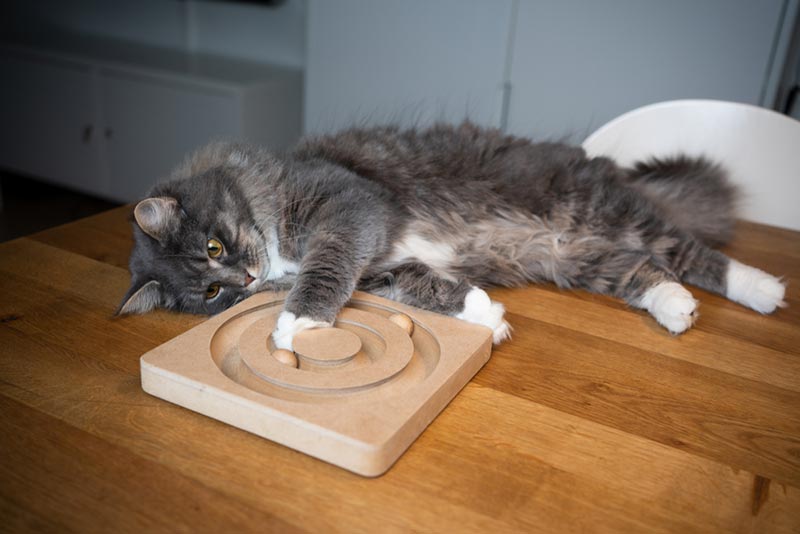
Click to Skip Ahead
Outdoor cats face multiple dangers in their daily routines, which is why many owners and veterinarians recommend keeping them indoors. But if your cat is already an outdoor cat, you might wonder if they can become an indoor cat. The short answer is yes, but it can take time. Keep reading as we list several reasons to keep your cat inside and provide tips for easing the transition.
Risks to Outdoor Cats
Exposure to Dangers and Hazards
Outdoor cats face many dangers and hazards. Many cats have trouble crossing streets, and some even lie down in the middle of the road, which puts them at risk of being hit by a car. They will also face predators and other wildlife in the city or the country. Your cat might fight with these animals, which can put them at risk of bodily harm, and they may contract diseases and parasites. Another risk that outdoor cats face is poisoning from toxic substances that they encounter.

Environmental Impact
Keeping cats indoors is also vital because they can potentially damage the environment. They hunt and kill local wildlife, including birds, mice, rabbits, and insects. They may also dig up or damage people’s gardens, which can cause neighbors to consider them pests. If your cat is not spayed or neutered, they may spray and mark their territory or get pregnant or impregnate feral cats, thus increasing that population. The males will also frequently get in fights with other cats.
Benefits of Keeping Cats Indoors
Increased Lifespan and Health
Keeping your cat indoors can help increase their lifespan and health by reducing the risk of accidents and injuries. It also helps protect them from diseases and parasites that they might acquire while outdoors, and you can better control their diet, so you know that they are eating healthily and getting the nutrients that they need.

Minimized Environmental Impact
Free-ranging cats present a danger to the environment, and some consider them the most destructive invasive species, as they hunt many different animals and can cause significant casualties in a single day. Therefore, keeping cats indoors helps reduce their environmental impact.
Enhanced Safety and Security
If you keep your cat indoors, you won’t worry about them getting stolen or lost. It will also help prevent them from getting into fights with other animals.
Transitioning Outdoor Cats to an Indoor Lifestyle
Gradual Adjustment
Getting your cat used to indoor living will likely be slow and gradual. Create a safe environment where they can feel comfortable, and provide scratching posts and engaging toys. Outdoor cats may also appreciate vertical spaces like cat trees and shelves that can help them get a good view of their environment.

Managing Behavioral Challenges
If your cat is not content with spending time indoors, you can help them by setting aside a few minutes each day to provide mental and physical stimulation by playing with them. Use a laser pointer, feather wand, or another toy that excites them for the best results. Cat puzzles can also help engage their mind and trigger their hunting instincts. You can implement positive reinforcement training techniques like treats and praise to help improve their behavior.
Environmental Enrichment
For cats, perches and window shelves are ideal for looking outside and enjoying the wildlife. You can even place a bird feeder outside to encourage birds to come, and many cats will spend hours in the window watching them, which can help distract them and make them feel more comfortable indoors. If you have the space, you can make an outdoor catio or enclose your porch to let go outside without giving them access to wildlife or dangerous situations.
Challenges & Solutions
Boredom and Lack of Stimulation
If your cat is feeling bored, you can try rotating toys every few days to provide new experiences for your pet. Puzzle toys and treat-dispensing devices can also help. Schedule several short 10-minute play sessions daily to help keep your cat stimulated and prevent boredom, especially when they first transition from outdoors to indoors.

Resistance and Adjustment Difficulties
Many cats will be extremely resistant to staying indoors at first, so we recommend reducing their outdoor time gradually to make the transition easier and less noticeable. Be patient but firm about how much time they spend outdoors, and only reduce it to a few minutes at a time for the best results. Try to create a consistent routine when they are in the home, and provide plenty of affection and attention, especially when they come inside.
Summary
Outdoor cats can become indoor cats but it can take quite a while. Reducing their time outdoors gradually and providing plenty of excitement when they’re indoors will help. Schedule several short playtime sessions daily to bond with your pet, and engage them with physical and mental activity. Laser pens, feather wands, interactive puzzles, and other toys can stimulate their mind and body and help them burn off excess energy, preventing them from becoming bored. Perches and window shelves can help them enjoy the wildlife outdoors without experiencing (or contributing to) the dangers.
See also:
- Indoor vs Outdoor Cats: Pros & Cons Explained (With Pictures)
- Dalmatian Dachshund Mix: Care Guide, Pictures, Info & Traits
Featured Image Credit: Ria Peene, Shutterstock






